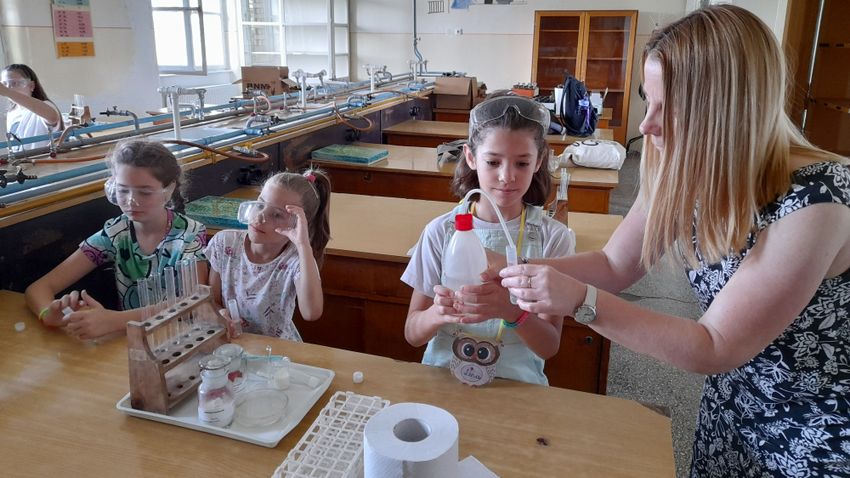It is clear that children’s relationship to each other and to knowledge is changing as a result of experiential education programmes. This was partly the basis for the Young Scientists Camp, organized for the third time this week by Gabor Bethlen Reform High School in Vasarheli, which filled up on very short notice. In addition, the children who came from different primary schools but had the same interests formed a supportive community already in the early days, immediately finding a voice with each other. Usually, they meet at school half an hour before the start of the morning, play board games, talk, and enjoy spending time together.
Geography and chemistry teacher Eszter Csukáné Varga said about the Wednesday program spent in the chemistry lab: The age group 8-10 is very receptive. At the same time, only scientific explanations are hidden in the experiments, and more emphasis is placed on seeing and experiencing in the holiday camp. They made an amazing lava lamp out of cooking oil, water, food coloring, and effervescent tablets, then experimented with rainbow colors by mixing milk, food coloring, and washing up liquid. Also a key element of the mission is the spectacle, when they produced an indicator from purple cabbage, which they then dropped into various chemical solutions to create a cascade of colours.
Mornings spent in the chemistry lab have a major impact on lower grades. I am sure that in the summer they will conduct the experiment even at home, with the participation of their family members
Eszter Varga stressed.

Renata Germatini Toth, one of the organizers of the tour, added: Laboratory Adventure is one of the most popular programs among students interested in the natural sciences. But fun and hands-on learning is available to children every day. On Thursdays, for example, they go on an adventure to Martili, where, in addition to relaxing, they get to know the wildlife of the backwaters. Adventurous programs intertwined with chemistry, biology or information technology, among others, actually foster children’s interest in science.
There are many returning students, and about half of the participants will apply to the gymnasium for the eight-term course with natural sciences and language departments. It is also noticeable that some of them came from primary schools where talent management plays a prominent role.












































